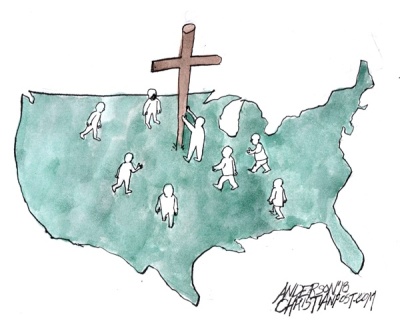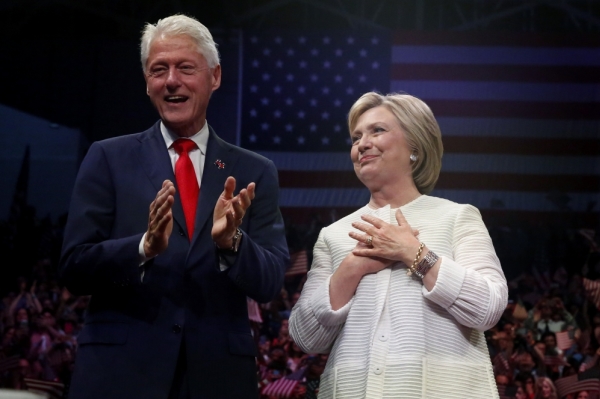‘We just need a revival’ and the negative world

In a recent edition of First Things, Aaron Renn wrote about the divisiveness afflicting the evangelical world. While in times past, American society had a positive and (later) neutral view of Christianity, it now holds an overall negative view of the faith.
“Being known as a Christian is a social negative, particularly in the elite domains of society. Christian morality is expressly repudiated and seen as a threat to the public good and the new public moral order,” Renn surmises, “Subscribing to Christian moral views or violating the secular moral order brings negative consequences.”
According to Renn, this “negative world” has been the social reality since at least 2014, roughly speaking. Divisiveness arises as some evangelicals embrace strategies that only work effectively in a positive world or neutral world context, or as some evangelicals pursue contradictory postures and approaches to the new negative world context, with cultural engagers having the most to lose.
Renn observed that culture engagement can morph into cultural synchronization while culture warring often finds Donald Trump’s rhetoric and policies attractive. In short, the reality of the negative world has torn typical evangelical alliances asunder, or it has at least strained the relationships self-professed evangelicals have had amongst themselves. Dysfunction in evangelical circles increases when folks refuse to acknowledge that we dwell in a negative world context.
While this analysis can seem heady, it really isn’t. We need only consider the phrase “we need a revival in this country.” Evangelicals will utter this phrase when discussing political issues. They will see a popular evil, a broken system, or an intransigent opposition to justice. Fixing that complex system is beyond their knowledge, or perhaps a bad policy is unlikely to be uprooted within their lifetime. They observe the seeming impossibility of correction due to lack of will and allies, and, in discouraged frustration, they proclaim the need for national revival. In many ways, evangelicals are saying, “If we had a revival, more people would agree with us and that would manifest in desirable changes in society and politics. I don’t want to be in the negative world. Revival would make that go away.”
Maybe that analysis presumes too much. Confessing the Christian faith doesn’t offer explicit guidance on medical care reform, diplomatic stances with other regimes, tax rates, and more. Incompetence at the DMV won’t disappear because everyone becomes an ardent Christian.
Nevertheless, there remains an intuition that revival addresses key problems. But one does detect a lost sense of agency when evangelicals wish for revival. Things have not been restored, retained, or established as they should, and it seems unlikely that they will unless the American people (and their elites) have a change of heart. Now, revival is a work of God, not of man. And so Christians would do well to repent of their own sins and supplicate the Divine for the salvation of the lost, for no other reason than the Great Commission.
However, in the meantime, the faithful must navigate the negative world as it is. That will require hard work and careful thinking that we in our slothfulness wish to avoid.
Sadly, evangelicals don’t want to make unfamiliar political alliances, invest in alternative schooling models, or pursue a different vocational script than that offered by the wider culture. Yet flexibility in cooperation, thoroughly Christian education (particularly of the classical variety), and skepticism with regard to corporate jobs and established narratives regarding gainful employment is exactly what is needed at this juncture. Some desperately fear a loss of social status and refuse a necessary renunciation of the world.
Others find it difficult to think practically, such as how to equip their young people to excel in durable trades, entrepreneurship and productive households (including the acquisition of a suitable spouse). Yet others maintain biases that hinder much-needed alliances or that attempt placating parties (on both the right and the left) that will simply never countenance biblical Christianity, nor allow its values to hold any sway in society.
Obviously, surprises abound in history; Christians cannot embrace a decline narrative in light of this truth. Revivals do bring unexpected shifts. However, evangelicals would do well to understand the current moment and act accordingly with a cool-headed sobriety and determination. At present, denial of the negative world creates unnecessary consternation, conflict, and confusion. If evangelicals are going to minister wisely and navigate our cultural context, they need to know the times (1 Chronicles 12:32).
Evangelicals might not like the times, but they must assent to reality if they are to conduct themselves with prudence.
Originally published at Juicy Ecumenism.
Barton Gingerich graduated in 2011 from Patrick Henry College with a B.A. in History. He serves as a priest at St. Jude’s Anglican Church in Richmond, Virginia, and previously served on the staff of the Institute on Religion & Democracy.





















